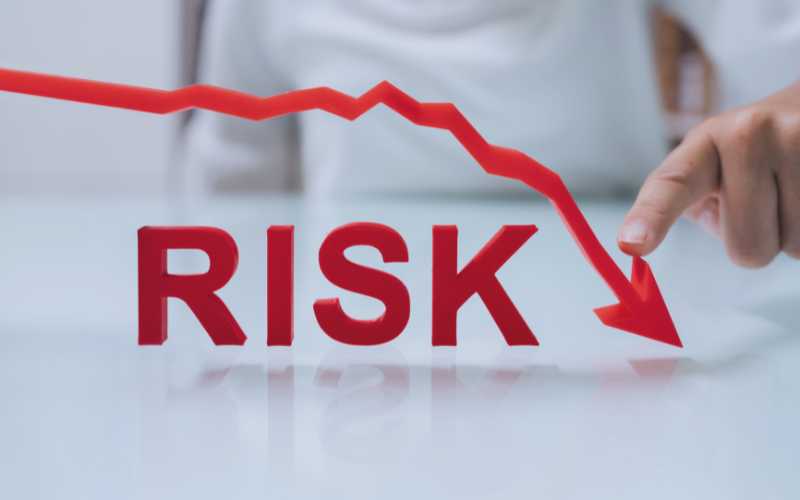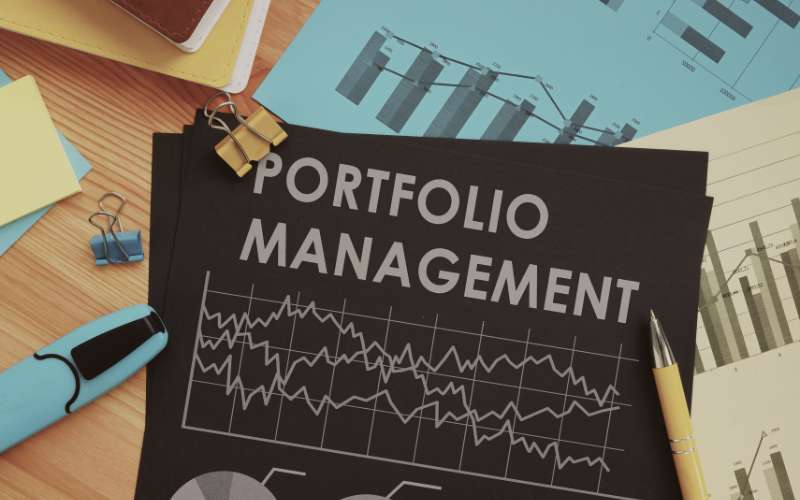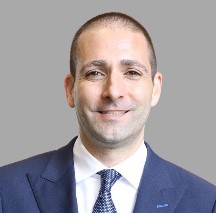First, let’s call it like it is: Stock volatility isn’t just background noise—it’s a key factor that can derail your wealth-building plans if you’re not proactive.
In technical terms, volatility refers to the standard deviation of returns—a statistical measure of how much a security’s price deviates from its average price over time.
When investors talk about market volatility, they’re really talking about the wild ride of price swings that can wreak havoc on portfolios. Big, sudden price changes aren’t just stressful—they’re often disastrous for those who aren’t diversified.
Take the VIX, lovingly (or fearfully) nicknamed the “fear index” and managed by the Chicago Board Options Exchange. It measures implied volatility in options trading, giving a window into expected volatility for the broader market. Recently, the VIX has been flashing signals not seen in over a decade, reminding us that higher volatility isn’t an abstract theory—it’s happening right now.
In 2023, the S&P 500 Index recorded more than 40 days where stock prices moved by 1% or more in either direction—a stark uptick compared to the historical volatility averages we used to take for granted. That’s not normal noise. That’s the market screaming.
And when the overall market is shaken, it’s the long-term, buy-and-hold crowd that feels it most. Long-term investing is critical, but surviving in today’s volatile market demands smarter hedging strategies.
Stock Market Volatility: A Growing Risk for Investors
Stock market volatility is on the rise, and long-term investors, particularly those nearing retirement, are feeling the squeeze. With interest rates climbing and investor sentiment increasingly fragile, the broader stock market is more sensitive than ever to news cycles, earnings reports, and economic data points.
Here’s the brutal truth: if your portfolio is tied too tightly to market indexes or growth stocks, you’re exposed to high volatility whether you like it or not. Stock price swings driven by unpredictable factors mean that even traditionally “safe” assets are seeing increased volatility.
Sure, over the very long haul, equities can deliver returns. But higher risk isn’t just theoretical anymore—it’s real, it’s daily, and it’s brutal.
Smart investors know they need an investment strategy that can manage volatility without requiring them to be glued to their trading apps.
That strategy isn’t just about assets—it’s about mindset. Franchise owners who thrive in volatile environments share a growth-oriented, resilient approach to decision-making.
Franchise Investments: Your Hedge Against Stock Market Volatility

When the stock market starts behaving like a roller coaster—up one day, down the next—it’s easy to feel like you’re holding on for dear life. That’s where franchise investments come in, offering a reliable way to balance your portfolio and hedge against market volatility.
Unlike stocks, which are tied to the fluctuations of an underlying asset or stock prices, franchises are rooted in real-world businesses. You’re not gambling on numbers that bounce around with every headline; instead, you’re investing in something built to generate cash flow and driven by steady consumer behavior. The financial statements of franchises reflect real revenue streams and operational performance—far more predictable than the daily noise of stock market swings.
During times of market volatility, franchises in sectors like home services, senior care, cleaning, and essential goods stand strong. Just look at what happened during COVID-19—while the broader stock market took a huge hit, franchises in these industries didn’t just hold their ground—they actually grew. People still needed these services, and they continued to pay for them, even in the toughest of times.
Franchises don’t just survive—they thrive in volatile markets.
They are built to adapt quickly, pivot when necessary, and provide real value, even when stock market volatility has investors on edge. So, while the broader market is in freefall, franchise owners are building solid, long-term businesses that reduce risk and offer predictability.
In a world dominated by unpredictable stock prices and increased volatility, investing in franchises offers a way to embrace volatility without being tossed around by it. They let you manage your investments in a way that’s not about hoping for the best, but about building something real, stable, and rooted in fundamentals.
Why Franchise Investments Outperform in Volatile Markets
When market volatility is spiking and stock prices are swinging like a wrecking ball, it’s easy to feel like you’re trapped on the Wall Street rollercoaster—with no seatbelt and no idea where the next drop is.
Franchise investments, however, offer a much smoother ride. Here’s why they’re built to shine when financial markets start acting up:
1. Predictable Cash Flow You Can Actually Plan Around

In the stock market, you’re at the mercy of investor sentiment, earnings reports, interest rates, and whatever mood the Fed Chairman woke up in.
In franchising, you’re building revenue through real, local business activity—day after day, customer after customer. Instead of refreshing your phone every 30 seconds to see if stock prices have tanked, you’re focusing on tangible things you can control: operations, customer service, and steady cash flow.
Predictable income isn’t just a “nice to have” when there are big price swings. It’s the financial lifejacket that keeps you afloat when the broader market is throwing a tantrum.
Translation: You can actually plan for your financial future without holding your breath after every Fed announcement.
2. Lower Risk Profile Without Sacrificing Growth

Let’s be real: even so-called “safe” growth stocks can nosedive without warning during periods of increased volatility. One bad earnings call, one wrong tweet from a CEO, one unexpected interest rate spike—and boom, there goes 15% of your portfolio overnight.
Franchises, on the other hand, come preloaded with a proven business model, an established brand, and a built-in customer base. They operate more like low-volatility assets but with the bonus of operational control.
Owning a franchise lets you manage volatility proactively. You’re not stuck hoping a boardroom full of strangers makes the right call—you’re the one driving growth and managing risks.
Bottom line:
It’s a chance to capture returns without strapping yourself to the high-drama, higher risk, mood-swing machine that is the stock market.
3. Built-In Support Networks

(You Shouldn’t Have to Go It Alone) When you invest in stocks, nobody from Apple or Amazon is picking up the phone to coach you through a downturn. You’re just another ticker symbol in a sea of ticker symbols.
In franchising, it’s different.
Franchisors want you to succeed. They provide playbooks, marketing support, operations manuals, and training programs—all designed to help you navigate both boom times and rough waters.
Especially during volatile market conditions, having a franchisor in your corner is like having a GPS when everyone else is wandering through the fog.
The kicker: strong franchisor support dramatically reduces your operational risk. You’re not flying solo; you’re leveraging collective experience and best practices to steer through storms.
Pro tip:
This makes an especially huge difference if you’re nearing retirement and looking for safer, semi-passive investment options.
4. Growth Potential in Every Type of Market Weather

Look, it’s easy to make money when everything’s going up. It’s during downturns—when market indexes are bleeding red—that real, durable businesses prove their worth.
The best franchises aren’t just recession-proof; they’re recession-thriving. Essential services like home cleaning, healthcare, senior care, and logistics show average volatility that’s far lower than beta value stocks. They tend to grow—even as the broader stock market sees higher volatility and steep declines.
You’re not banking on perfect market conditions or hyper-optimistic forecasts. You’re building something rooted in essential consumer needs—needs that persist no matter what’s happening in Washington, Wall Street, or the headlines.
In short:
Franchises turn market volatility from a threat into an opportunity. While other investors are panic-selling, franchise owners are scaling their businesses and capturing market share.
How to Choose Franchise Investments to Outsmart Stock Volatility

Strategic franchise selection is mission-critical when you’re building a real hedge against stock market volatility.
Focus on:
- Industries with low cyclicality and essential demand
- Brands with strong historical performance during periods of higher volatility
- Business models that require minimal external financing (especially with rising interest rates)
- Key questions to stress-test your investment
- What’s the initial investment versus long-term profitability timeline?
- How has the brand historically performed during spikes in stock market volatility?
- What level of franchisor support mitigates operational risks?
- Does this investment match your risk appetite and risk tolerance?
Brands like Home Instead (senior care) and Two Men and a Truck (moving services) didn’t just “get by” during recessions—they expanded. This is not coincidental; it’s the result of smart business models built for resiliency.
And, seriously: Read the Franchise Disclosure Document (FDD) like it’s the fine print on a billion-dollar lottery ticket. Then grill existing franchisees like you’re prepping for a trial. Trust—but verify.
FAQs
Because volatility isn’t just numbers on a chart—it’s what makes your portfolio jump one day and tumble the next. When markets get unpredictable, even long-term investors can see their hard-earned gains wiped out. Understanding stock market volatility is key to protecting your wealth and keeping your financial goals on track.
A lot of things! Interest rate hikes, inflation, corporate earnings, global conflicts, or even one bad headline can send stocks swinging. Add in emotional reactions from investors, and prices can spiral fast. That’s why it’s smart to balance your portfolio with something steadier—like franchise investments that aren’t tied to daily market drama.
Franchise investments are grounded in real businesses with consistent demand. Instead of betting on unpredictable stock prices, you’re investing in products or services people use every day—like cleaning, moving, or senior care. That steady cash flow helps you build and protect wealth even when Wall Street gets rocky.
No investment is completely risk-free, but franchises come with built-in advantages. You get a proven business model, brand recognition, and ongoing franchisor support—things you’ll never get from owning shares in a public company. That makes franchises far less vulnerable to market swings and emotional trading cycles.
Franchises that offer essential, everyday services tend to hold up best—think home cleaning, healthcare, logistics, and senior care. These businesses meet needs that don’t go away, no matter what’s happening in the markets. In other words, they’re as close to “recession-resistant” as it gets.
Future-Proof Your Investment Strategy
In an environment of unrelenting market volatility and disruptive price swings, leaning exclusively on the stock market is asking for unnecessary pain.
Franchise investments deliver something the modern financial markets increasingly cannot: stability, predictability, and growth based on fundamentals rather than investor sentiment.
Stock price movements and price changes can erode your wealth faster than any bear market meme. But franchise investments? They offer the chance to build tangible value, independent of broader stock market meltdowns.
If you’re serious about long-term investing and tired of refreshing your portfolio only to see it shrink, it’s time to recalibrate.
Tired of watching your investments stall? Explore a purpose-driven, stable opportunity in “Mental Health Franchise: Risks & Rewards.”
Franchising isn’t a gamble. It’s a strategic play for investors ready to manage volatility, protect wealth, and create operational value that endures regardless of market conditions.
Ready to stop letting Wall Street drama dictate your financial future?
Partner with a trusted franchise consultant to find investments aligned with your goals, risk tolerance, and financial ambitions.
Take control. Diversify smartly. Build wealth sustainably.


